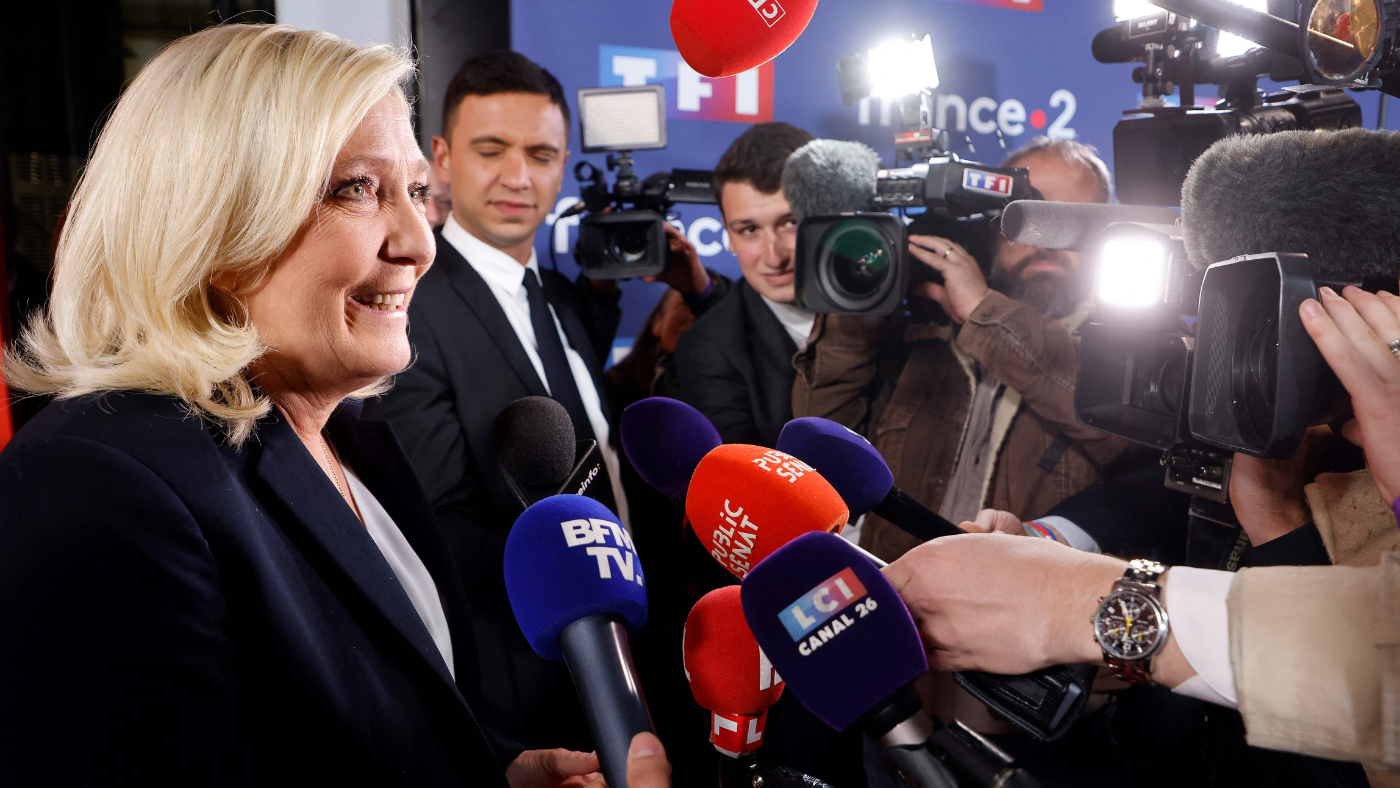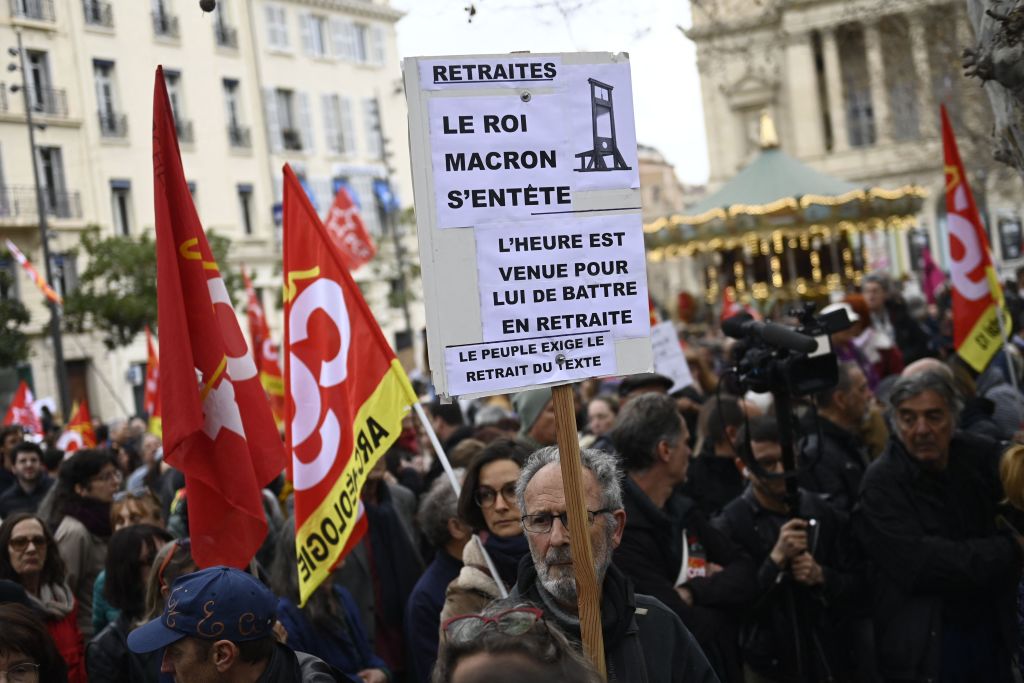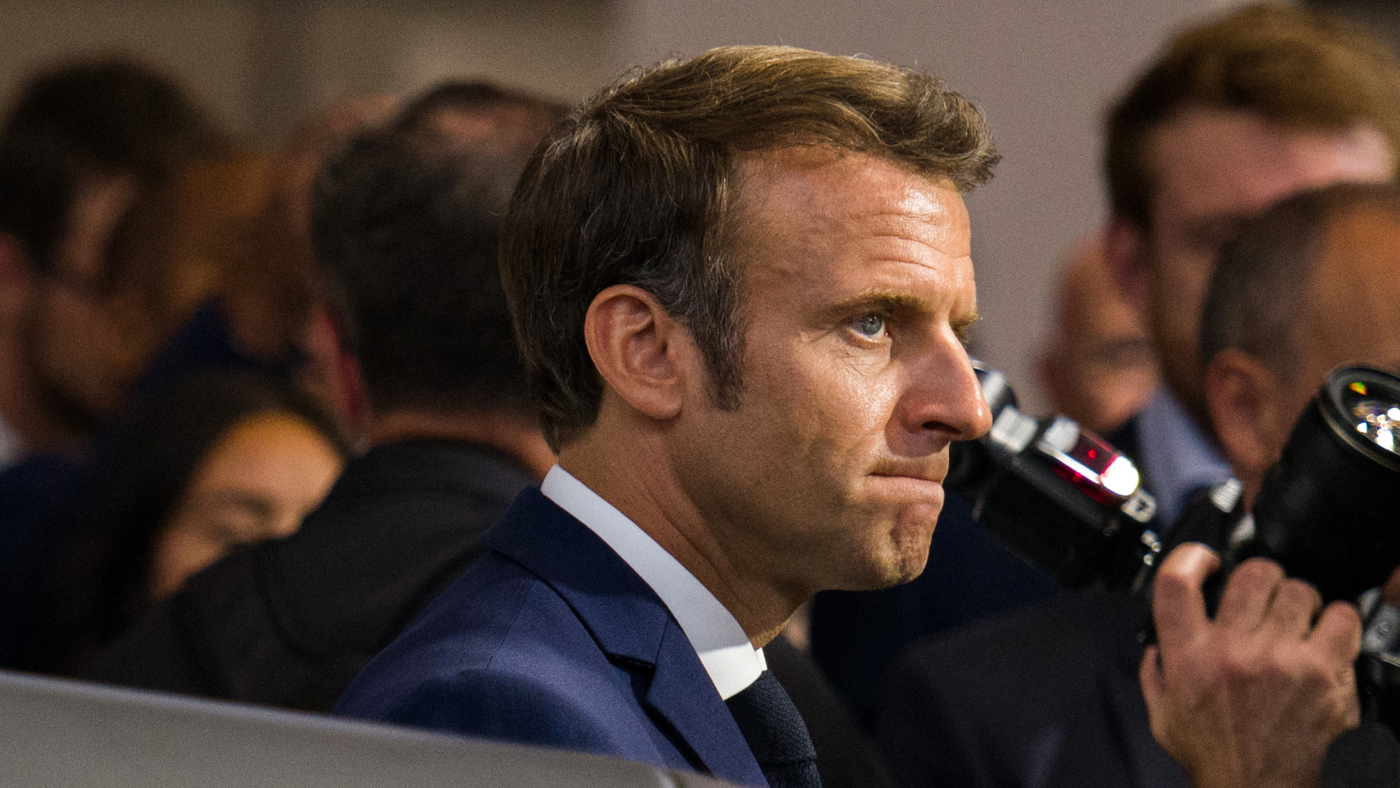‘England’s one-sided football rivalry with Germany has lost its bite’
Your digest of analysis and commentary from the British and international press

A free daily email with the biggest news stories of the day – and the best features from TheWeek.com
You are now subscribed
Your newsletter sign-up was successful
1. England’s one-sided football rivalry with Germany loses its bite
Simon Kuper in the Financial Times
on a new bogeyman
“Don’t be fooled by the chants of ‘Two World Wars and One World Cup, doodah!’, or by English fans stretching out their arms in imitation of Royal Air Force bomber planes. The truth is that England’s one-sided football rivalry with Germany has lost what teeth it had,” writes Simon Kuper in the Financial Times. “That’s largely because English people now define themselves more against each other than against the Germans.” Indeed, Kuper adds, “England’s biggest needle match of recent years was the Remain-Leave derby of June 23, 2016 in which the underdog Leavers rode an early lead to a 52-48 victory, prompting the resignation of ashen-faced Remain boss David Cameron.” The Brexit vote kicked off “a cultural civil war that will continue at Wembley, where English nativists will boo and English liberals applaud England’s players for kneeling in support of Black Lives Matter.” It seems that the Germans have “gone from bogeymen to guests trapped in the middle of an embarrassing domestic row”.
The Week
Escape your echo chamber. Get the facts behind the news, plus analysis from multiple perspectives.

Sign up for The Week's Free Newsletters
From our morning news briefing to a weekly Good News Newsletter, get the best of The Week delivered directly to your inbox.
From our morning news briefing to a weekly Good News Newsletter, get the best of The Week delivered directly to your inbox.
2. Could we embrace the four-day working week and all that it brings?
Phil McDuff in The Independent
on old habits
“In the wake of the Covid-19 pandemic, the idea of the four-day working week is picking up speed around the world,” writes Phil McDuff in The Independent. Is the nine-to-five, Monday-to-Friday working week “really necessary, or is it just a habit?” he asks. While the four-day week is a “popular idea”, the Labour Party took up the cause in its 2019 manifesto “and resoundingly lost the election”. After all, “British society has an overdeveloped aversion to the idea that someone, somewhere, might be getting something they don’t deserve,” continues McDuff. We believe “[t]he poor are idle, and the idle are poor; the rich are diligent, and the diligent are rich”, despite that “this so often conflicts with our experiences”. “As the coronavirus tide recedes, many questions like this will be raised. Can we, as a society, make decisions based on collective good? Or will we, like crabs in a bucket, find ourselves unable to shift our old biases?”
A free daily email with the biggest news stories of the day – and the best features from TheWeek.com
3. Why we must all resist the woke war on written English
Zoe Strimpel in The Telegraph
on grammar rules
“Students today can no longer take for granted the apparent luxury of being evaluated harshly and fairly, and with it, the potential for learning, improvement and excellence,” writes Zoe Strimpel in The Telegraph. With its “genius for turning good things bad and true things false, woke ideology has decided that even basic standards of coherence and accuracy themselves are evidence of a white, male Euro-centric (and therefore bad) worldview,” writes Strimpel. “At a number of universities in Britain, good spelling, proper grammar and robust essay structure – not to mention concepts like facts, truth and argument – all now fall under suspicion,” she continues. “Continuing on in thrall to these devious non-ideas now risks turning us into a nation of woolly-headed illiterates.” “There is much that is seriously, morally wrong about woke ideology, even in its most trifling manifestations,” says Strimpel. “But of all its evil offspring, the social justice movement’s commitment to the desecration of standards – of the very idea of merit itself – might be the most malign.”
4. Why Johnson fought so hard to save Matt Hancock
Paul Goodman in The Times
on media management
“If Boris Johnson had his way, [Matt] Hancock would still be health secretary this morning,” writes Paul Goodman in The Times. But “why did the prime minister stick by his health secretary? After all, it’s not as though they’re political soulmates,” he continues. In examining that question, we should “never forget that the prime minister is a long-time working journalist who, over the years, has developed a jaded view of media pile-ons”. Indeed, Johnson “was combining journalism with trying to build a political career when John Major’s government was overwhelmed by sleaze claims”, and seems to have “drawn precisely the opposite conclusion from the Major years to what one might expect. This would be: never show weakness. Don’t give the media what it wants (especially with a back story as colourful as his own).” Johnson knows better than most that if you “throw the wolves a carcass from the back of the sledge… they will come howling back for more”, and the last thing Johnson wants is a “media frenzy, with ministers facing a mass of revitalised inquiries about what they were doing when, why and with whom”.
5. The electoral humiliation of Macron and Le Pen
Jonathan Miller in The Spectator
on French political stalemate
“The message is loud and clear. French voters are weary of the sight of both Macron and Le Pen,” writes Jonathan Miller in The Spectator. The French President Emmanuel Macron “has failed to deliver any substantial element of his reform programme”, has “fumbled the Covid crisis, and is obsessed with a European ideology that does not resonate at all with voters”. Le Pen, on the other hand, failed to produce “anything resembling a coherent plan to extract France from its social and economic crisis, and her flailing efforts to present herself as a moderate produced not a single regional or departmental victory”. Indeed, it’s “difficult to choose which one is more disagreeable to the electorate”, suggests Miller.
-
 6 gorgeous homes in warm climes
6 gorgeous homes in warm climesFeature Featuring a Spanish Revival in Tucson and Richard Neutra-designed modernist home in Los Angeles
-
 Russia’s ‘cyborg’ spy pigeons
Russia’s ‘cyborg’ spy pigeonsUnder the Radar Moscow neurotech company with Kremlin-linked funding claims to implant neural chips in birds’ brains to control their flight, and create ‘bio-drones’
-
 Political cartoons for February 8
Political cartoons for February 8Cartoons Sunday’s political cartoons include going down the drain, American history, and more
-
 How the world reported French riots over shooting of teenage boy
How the world reported French riots over shooting of teenage boyfeature Violence has ripped through French suburbs in days following death of Nahel M.
-
 Bees delay flight for three hours
Bees delay flight for three hoursfeature And other stories from the stranger side of life
-
 French minister sparks anger with Playboy cover
French minister sparks anger with Playboy coverSpeed Read Marlène Schiappa gave interview on women’s and LGBTQ+ rights – photographed fully clothed in white dress
-
 France after Macron: can anything stop Marine Le Pen?
France after Macron: can anything stop Marine Le Pen?Today's Big Question Analysts believe the far-right leader may be the biggest political beneficiary of popular fury over President Macron’s pension reforms
-
 Is France 'on the edge of civil unrest'?
Is France 'on the edge of civil unrest'?Today's Big Question Protests have erupted in response to Emmanuel Macron's decision to unilaterally raise the retirement age
-
 France's pension protests, explained
France's pension protests, explainedSpeed Read President Macron wants to raise the retirement age. French workers say 'non merci.'
-
 ‘France looks more ungovernable than ever’
‘France looks more ungovernable than ever’Instant Opinion Your digest of analysis from the British and international press
-
 ‘If the UK had won, Eurovision 2023 would have been at a Travel Tavern off the M4’
‘If the UK had won, Eurovision 2023 would have been at a Travel Tavern off the M4’Instant Opinion Your digest of analysis from the British and international press